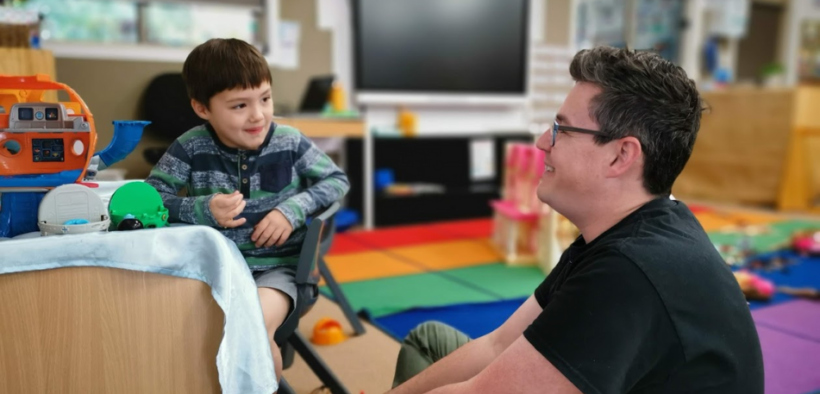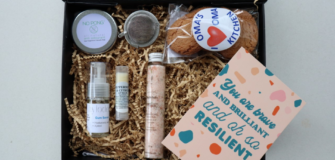In little more than a few months, our lives have been turned upside down. Accessing health care services is no longer the same as it was in February. Due to restrictions on movement, it’s unclear whether you should drive across town for a chiropractic appointment. Many children receive services such as speech and occupational therapy within the school, and with a number of schools remaining closed, therapy has been hugely interrupted.
Meanwhile, many traditional bricks and mortar health services, such as small GP clinics, are going out of business. How can this be? Are people no longer getting sick?
How Umbo has adapted to COVID-19
The reality is this shift to digital health has been progressing for decades, even before Skype was launched.
At Umbo, we are a social enterprise which was founded to ensure children in rural and remote Australia have access to speech and occupational therapy services. As the coronavirus pandemic hit Australia, we too shut our offices and moved all our staff and volunteers to work remotely.
And in doing so, we realised that we had something to offer the community. We launched a series of free resources for families whose lives have been disrupted by COVID-19. We organised a summit for allied health professionals to transition from face to face therapy to online. Over 500 people attended, of which several told us that the summit kept their doors open (figuratively!).
At the same time, Umbo has experienced rapid growth. In just a month, we experienced 5,800% increase in activity for our training of clinicians. We have also seen a 1,000% increase in clinician recruitment – as many have lost jobs and opportunities due to COVID-19. We are preparing for a similar increase in demand for services.
What has happened in the health ecosystem
As health services transitioned and prepared for an onslaught of COVID-19 cases, many elective and non-urgent services were cancelled. Many of these services directly affected our clients – for example, maxillo-facial and dental surgeries that precede speech pathology.
However, there has been a raft of changes that have affected your ability to access health care online. More and more private health funds are covering online sessions. The changes to Medicare which cover online sessions, an area which no one would have predicted movement in, has experienced so many rapid changes that it is almost impossible to keep up with.
The NDIS, which has over a quarter of a million participants, is perfectly positioned to deliver vital services online.
Now, more than ever, the landscape of digital health has changed. And this is an exciting time for the consumer.
How social enterprises can respond
Moving forward, the pressure on families who are underprivileged will increase. It’s clear that Australia is heading for massive economic pain, and people with disabilities, those in rural communities and those from lower socioeconomic backgrounds will bear the brunt of this.
Now, more than ever, the need for social enterprise is vital.
The very issue that Umbo was set up to address – the lack of health care in rural communities – exists due to market failure. Despite the fact that the NDIS exists to provide funding for disability services, people in lower socioeconomic backgrounds have anecdotally struggled to access this funding. People in rural areas are also at risk when you consider the cost of acquiring and delivering services in these areas is higher.
We cannot expect to leave it to market forces to get us out of this mess. And that’s where social enterprise can help.
At Umbo, we track not only the standard business metrics, such as revenue, customer acquisition cost and numbers of sessions, but also social impact metrics. Since opening our doors, we estimate that, due to Umbo’s online therapy, we have traversed over 10,000km virtually with our online sessions, saved over 1,000 hours of travel time, and cut waiting times down from up to 18 months to 1 week.
It would be challenging to achieve this if we were established as a standard for profit business. However, Umbo’s constitution states that we have a focus on “persons in rural and remote areas”, and therefore our business decisions revolve around this, not purely profit.
If globally, the COVID-19 environment has forced us to consider a “new normal”, we must consider a normal that supports the most vulnerable in our society.
Weh Yeoh is a four time founder. After co-founding WhyDev, a non profit organisation committed to getting international development right, he founded OIC Cambodia in 2013. OIC is an initiative that aims to establish speech therapy as a profession in Cambodia. He co-founded Happy Kids Clinic, a social enterprise which supports OIC.
He has both a BA in Physiotherapy from the University of Sydney and an MA in Development Studies from the University of NSW. He has volunteered with people with disabilities in Vietnam, interned in India, studied Mandarin in Beijing, and milked yaks in Mongolia.
Weh is recognised by the University of Sydney as both an Adjunct Senior Lecturer and the Alumni Award for Service to Humanity for Faculty of Health Sciences. He is also one of the 40 Under 40 Most Influential Asian-Australians.
To add to his list of achievements, Weh was recognised by
Third Sector Awards as the Social Entrepreneur of the Year in 2019.
























































































































































